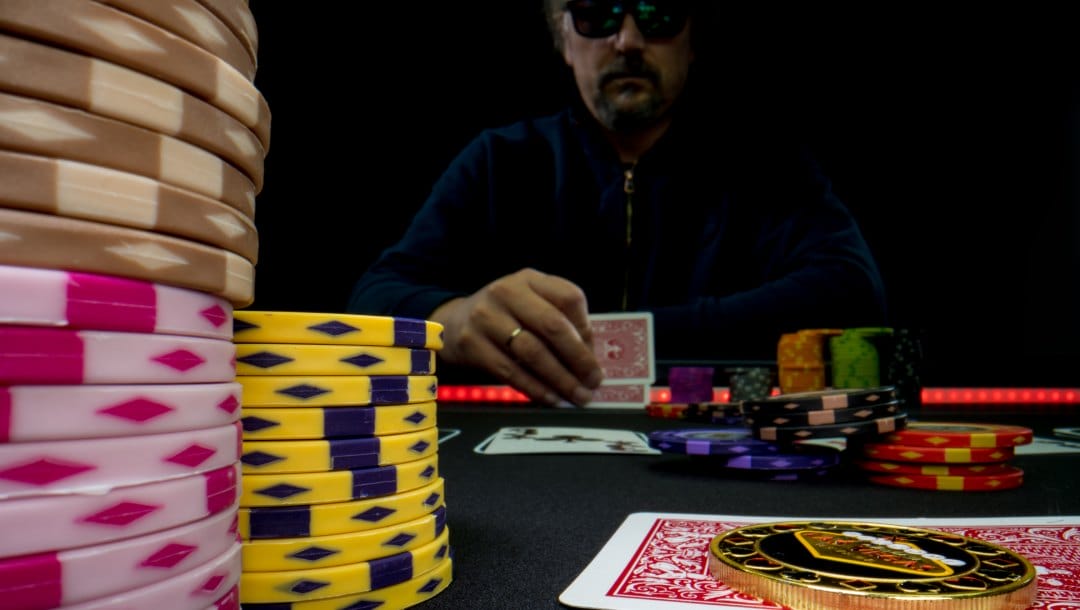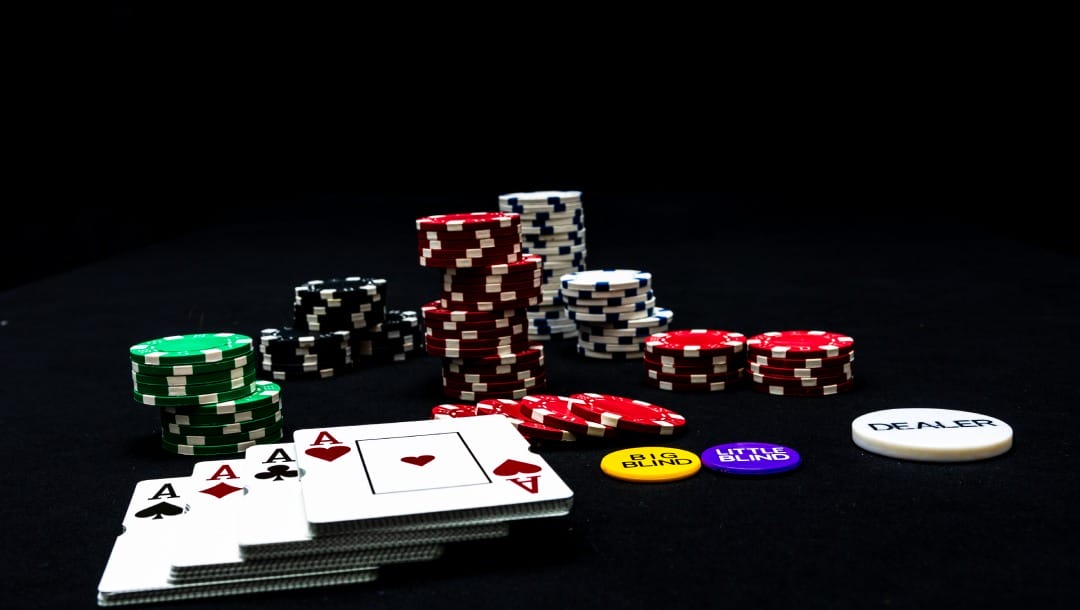Steering clear of bad habits is the best way to improve your skills. Read on as we identify several bad poker habits and discuss how to avoid them.
Drop These Poker Habits That Are Costing You Wins

Whether you’re a professional or a beginner, you’ll find that mistakes are bound to happen in online poker. Sometimes they only happen once. In other instances, they turn into habits. Poker tournaments can last several hours, meaning your stamina and concentration are crucial, and making constant mistakes is detrimental.
Without guidance, it’s easy to fall into the trap of repetitive blunders. However, practice makes perfect: consistently steering clear of bad habits is the best way to improve your skills. We identify several bad poker habits and discuss how to prevent them from happening again.
The different bad habits and how to avoid them
Adopting bad habits can ruin a player’s poker strategy and, in the worst cases, cause them to tilt. To play in an online poker tournament and come out the other side with a profit requires an element of risk, good fortune, and knowing when to bet, check or fold. Below are some of the bad playing habits that gamblers tend to adopt.
Counting chips before you bet
Poker is about being subtle and not drawing attention to yourself, hence the saying “poker face.” Beginners usually take up this habit; before their turn, they will begin counting chips in preparation for their bet. This should never be done. Your opponents are constantly looking for clues to what hand you may have – counting chips before betting can give away the fact that you have strong hand. If so, players who were bluffing or semi-bluffing will fold, meaning you’re unable to build up a pot – ultimately resulting in the waste of a strong hand.
Over-bluffing
Over-bluffing can result from several scenarios, such as experiencing a series of mistakes or a bad bet and wanting to make up for it as quickly as possible. Unfortunately, this can unravel your whole game in a few rounds. Keeping your composure after a loss is crucial to your longevity in the game. A method to avoid this is by giving yourself a break. This can be done by folding a couple of rounds to take a deep breath, control your emotions and then resume. Moreover, understanding that heavy losses happen to everyone and that not every game will be profitable is an essential step in overcoming emotions.
Not knowing when to quit
A key difference in poker strategy between a professional and a beginner player is understanding when to quit a game or match. Deciding to play every round rather than pursuing calculated risks is poker suicide. A great way to avoid this is by understanding the rankings of poker hands, allowing you to weigh up your chances of success and bet accordingly. Other ways include setting limits on winning and losing maximums, the time you play and hands played. For example, if you set a loss limit of $250 and you reach that, you should leave the game. Responsible gambling is crucial when betting. BetMGM insists players must only stake what they can afford to lose.
Not taking breaks

The beauty of online poker is that games happen 24/7. So, there’s no need to overexert yourself by going into back-to-back games. Not taking breaks can be catastrophic. It leads to mistakes, tilting and out-of-character betting. After a long game, be sure to breathe some fresh air and take at least a 20-minute break.
Playing too safe
To be successful in poker tournaments, you need to take risks – conservative play will get you nowhere. More problematically, it suggests you only play when the cards are right. Once opponents spot a conservative play style, it becomes very hard to win big pots as players realize you will only bet when you have a strong hand. Maintaining an element of spontaneity is the best way to keep the opposition on their toes. A great avenue to start taking more risks is semi-bluffing. This is the process of having a weak or medium-strength hand that has the ability to become strong. Say that you are dealt a jack and an 8 of the same suit. This hand gives you the chance of a flush or straight. As you start to take more risks, you will develop a greater feel for when to do it. However, gambling responsibly is crucial to having fun and enjoying the game. It’s just beneficial to mix up your conservative play with aggression.
Not understanding your odds

The key to taking calculated risks is knowing your chances of success. For beginners and (sometimes) intermediates, it’s easy to get carried away when holding a strong hand such as a straight. But it’s vital to identify what other hands are available based on the cards placed on the board by the dealer. This gives you a great understanding of why others might be betting and whether you have an outright chance of winning the round. Say for example that your hand contains a 9 of hearts and a jack of diamonds, while there is a 5 of hearts, 8 of clubs and queen of clubs on the flop. Yes, you’re one card away from a straight, but it also means an opponent may be one card away from a flush – the stronger ranking hand of the two. Once you start to figure out the possibilities of other hands versus yours, you start to get the gist of your probability of success and what others may have.
Test your skills on BetMGM
Do you want to play poker online? BetMGM hosts an array of poker games and tournaments in various formats and buy-in amounts that can be played anytime, anywhere on mobile, tablet, and computer.
Register today and unlock our endless range of live dealer casino games, online slots, and so much more.


